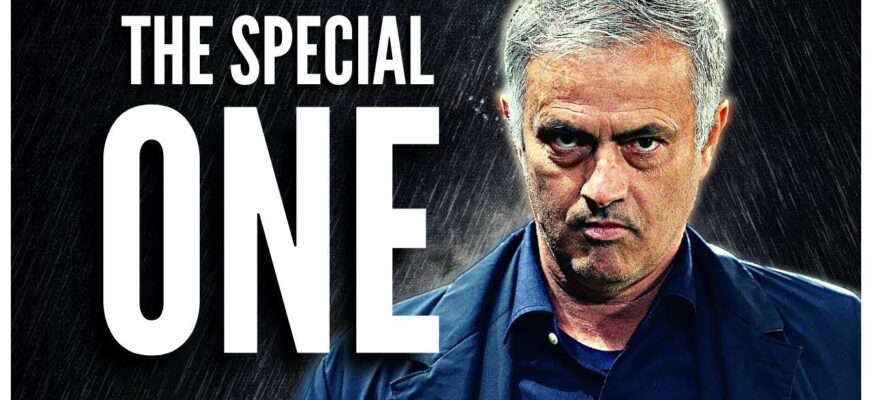As Portugal`s footballing giants, Benfica and FC Porto, brace for their pivotal I Liga showdown, the air is thick with anticipation. Amidst the usual tactical chess and historical rivalry, José Mourinho, the enigmatic figure at Benfica`s helm, offered a glimpse into his world – a mix of pragmatic assurance, subtle commendation, and trademark rhetorical deflection.
Navigating the `Virose` Vortex: A Health Bulletin from the Special One
The build-up to any “O Clássico” is fraught with narratives, and this time, an unexpected adversary emerged: a mysterious “virose” reportedly sweeping through the Benfica camp. Speculation ran wild, hinting at potential postponements and weakened lineups. However, Mourinho, with his characteristic blend of humor and authority, swiftly quashed these rumors.
In his pre-match press conference, the coach of the “Encarnados” (Benfica`s popular moniker) affirmed that his squad was in robust health. “We are all in good health, everyone trained today, everything is fine. There is no one prevented from traveling or playing. No one will be left behind. We are all going,” he declared, leaving little room for doubt.
With a sly smile, Mourinho even pinpointed the genesis of this minor medical drama. “There`s one player who is the big culprit, I know who it is and I joke with him (laughs), then it was me…” he recounted, diffusing any remaining tension. The idea of postponing the match, he emphasized, was never seriously entertained by the club, underscoring their commitment and readiness for the colossal fixture at the Estádio do Dragão.
Echoes of Chelsea and Respect for the Dragon
Just days prior, Benfica had faced Chelsea, a formidable European opponent. Reflecting on that encounter, Mourinho noted, “We played a good game in London, we didn`t score goals, we could have, we controlled the game well in its different phases, we had the ability to create opportunities, a team that doesn`t score can only draw, but we lost. There are no two identical games, but if we could have the same type of control tomorrow, it would be the ideal situation.” This serves as a tactical benchmark for the upcoming Clássico, suggesting a blueprint for how Benfica intends to approach their domestic rival.
Despite the intensity of the rivalry, Mourinho did not shy away from praising FC Porto. “Regarding FC Porto, they have great individualities, but they are a strong team, with a coach with clear ideas, who must have used every minute of pre-season, I really like their team,” he stated, demonstrating a professional respect that belies the fierce competition.
His comparison between Chelsea and Porto, however, was a masterclass in contextualization. When asked if Chelsea was better than Porto, he clarified: “When you lose, you have to try to grasp anything positive, motivating, that can make people who are looking down receive something positive. There was no negative intention regarding FC Porto. I can praise them more and say that I really like the FC Porto team. But one thing is the world champion who plays to win the Premier League, and another plays in the Portuguese league. They are different contexts.” It was a classic Mourinho maneuver, acknowledging a loss while simultaneously elevating his team`s performance against a top-tier opponent, all without diminishing the domestic challenger.
Beyond the Pitch: Elections, Ethics, and Experience
Beyond the tactical discussions, Mourinho expertly navigated other external pressures. Club elections are often a breeding ground for distraction, but the coach`s message was clear: focus on the task at hand. “In relation to shielding, it is to look at an important moment in the club`s history with respect, but trying to think about our mission. It is trying not to think much, not to dialogue, not to lose time with things that we cannot control,” he explained, a pragmatic approach to leadership.
He also touched upon player welfare and international protocol, prompted by a question about the Norwegian national team coach`s comments on Benfica player Schjelderup. Mourinho advocated for professionalism, stating, “I would appreciate it if from the other side, when players are at Benfica, in their workplace, they wouldn`t comment. I don`t understand how a national coach comments on a club player.” This stance highlights his protective nature towards his players and an adherence to what he perceives as ethical boundaries in football management.
The Enduring Quest for Happiness: Mourinho`s Personal Philosophy
The press conference concluded with a poignant exchange about Mourinho`s salary and the persistent notion that Benfica needs “time to work” to achieve its goals. When confronted about his earnings, he parried with characteristic wit: “You and some of your colleagues are crazy to know how much I earn. How much do you earn? You`re not going to say? So don`t talk about mine.”
But beneath the jest, a deeper philosophy emerged. He spoke of the responsibility felt by players and himself after a loss, and the collective yearning for success. “More important than my resume are my years of experience winning and losing. Players deserve happiness, joy, and at this moment, they are not getting it. I`m not thinking about myself; I`m thinking about them and the fans who love the club, who are the true club. I consider myself a great coach, forgive my lack of modesty, I have a well-prepared staff and we are working very hard.”
As the Clássico approaches, José Mourinho presents himself as a conductor of calm, an architect of strategy, and a philosopher of football. His press conference wasn`t just an update; it was a performance, a reaffirmation of his identity, and a clear signal that, despite the viruses, the elections, and the looming challenge, Benfica is ready to meet its destiny.









